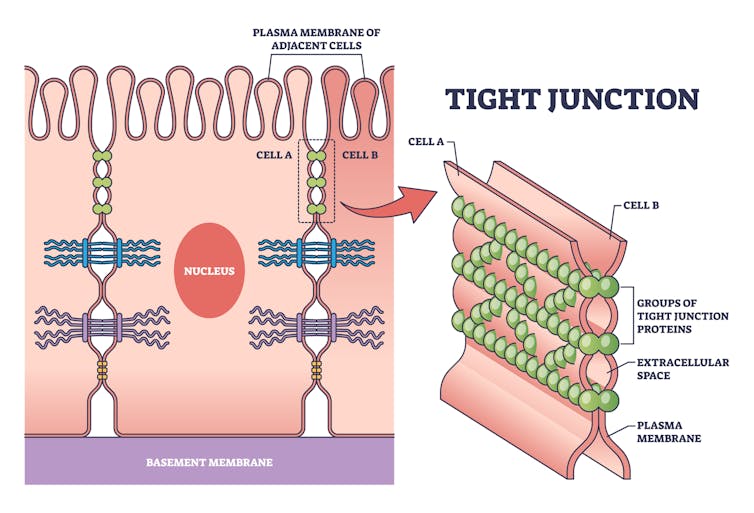You’ve likely heard about vitamin D’s important role in maintaining strong bones and teeth. But it also plays several other important roles to keep your body healthy – including the function of your gut.
As part of our research on how a dietary fiber supplement affects bone mass in children and adolescents, the MetA-Bone Trial, we are also studying gut health.
For this study, we recruited 213 children and adolescents from South Florida, primarily Hispanics, though some were Black. Before having them start taking the fiber supplement, we measured their vitamin D levels to ensure they had adequate amounts. Surprisingly, we found that 68% of these children had suboptimal vitamin D levels.
Considering South Florida is an area with plenty of sunshine year-round, this was both startling and concerning. While vitamin D can be obtained from foods, most people in the U.S. get this vitamin primarily from skin exposure to sunlight. For youth approaching or experiencing puberty – a period of profound physiological changes, including rapid changes in bone mass – vitamin D deficiency could lead to several health issues.

Vitamin D deficiency can have significant health consequences.
Hrant Khachatryan/Unsplash, CC BY-SA
Connection between vitamin D and health
Vitamin D is involved in so many bodily functions because there are vitamin D receptors in different organs. These receptors act like docking stations for vitamin D to bind to and trigger different effects in the skin, intestine, bone, parathyroid gland, immune system and pancreas, among others.
Vitamin D regulates calcium levels in the body, which is key for not only building and maintaining bone mass but also the basic functioning of the nervous system.
Vitamin D also stimulates cell differentiation, a process in which cells become specialized to carry out specific functions. It is also essential to insulin secretion to control blood sugar levels, blood pressure regulation, muscle repair and regeneration, immune function and nutrient absorption, among many other functions.
Vitamin D and gut health
The vitamin D receptors in your gut improve calcium absorption and strengthen your intestinal barrier.
The intestinal barrier is a layered wall that allows your gut to absorb nutrients and keep out harmful bacteria. This wall is composed of intestinal cells and proteins called tight junctions that act like bricks sealing these cells together. Tight junctions play an important role in maintaining the structure of your intestinal barrier.

Tight junctions keep the cells of your intestine together, forming a selective barrier.
VectorMine/iStock via Getty Images Plus
Vitamin D receptors help your gut produce tight junctions to maintain your intestinal barrier. Research suggests that vitamin D deficiency reduces production of the receptors the nutrient binds to, subsequently reducing the seal of the intestinal…


